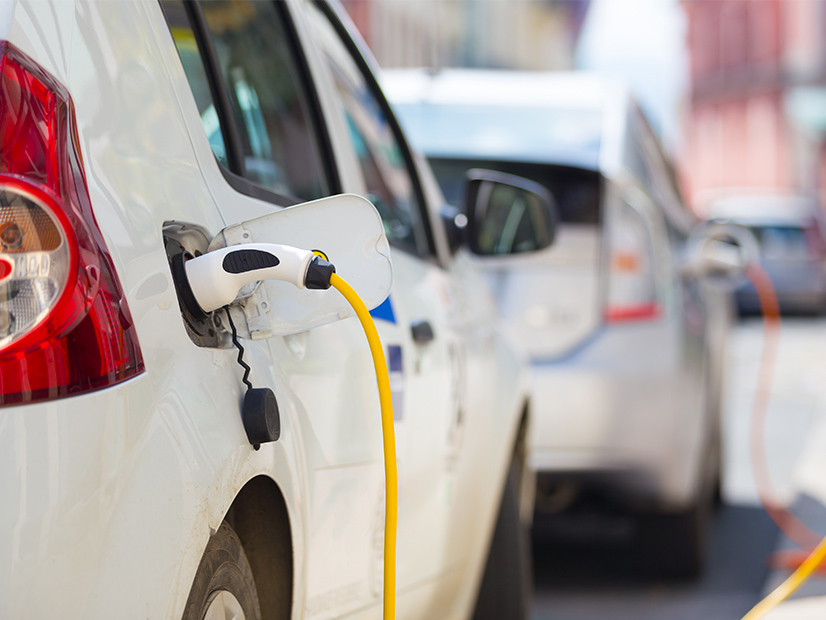
A group of policy experts and consumer advocates recently challenged Eversource Energy’s (NYSE: ES) plan to expand its electric vehicle (EV) program in Massachusetts, claiming the plan lacks adequate charging incentives.
The utility should try to match an off-peak rate proposal submitted by National Grid (NYSE: NGG), the group said during an Aug. 14 Massachusetts Department of Public Utilities (DPU) hearing.
National Grid and Eversource submitted proposals to expand their EV programs through 2025. In its proposal, Eversource is seeking to continue a program in which customers are encouraged to charge less during periods of peak demand. But National Grid is proposing to roll out an off-peak charging pilot program, incentivizing customers to charge during off-peak hours by reducing rates by 6 cents/ kilowatt hour (kWh) in summer and 4 cents/ kWh in the winter.
The utility based the off-peak rates on the difference between wholesale electricity rates during peak periods versus off-peak periods for those times of year.
Policy experts and consumer advocates say Eversource should take its proposal one step further to provide a rate incentive like National Grid’s plan. EV drivers want to charge their vehicles during off-peak hours for lower costs, but the nonprofit Green Energy Consumers Alliance says drivers should also earn incentives for doing so because of the value of the benefits to the system.
Providing incentives is another way to make driving on electricity more affordable, Larry Chretien, executive director of the Green Energy Consumers Alliance, said during the hearing, adding that both utilities should be pursuing incentives to grow EV adoption in the state.
While National Grid’s proposal included the idea of incentivizing drivers with reduced off-peak charging rates, Chretien testified the discount should be increased to “better reflect the value that [EV charging] brings to the grid and to society.”
An analysis from the Applied Economics Clinic found that National Grid calculated about the right difference between peak and off-peak wholesale energy costs based on current conditions, but wholesale prices could change with the introduction of more wind and solar on the grid.
Cory Bullis, a senior public affairs specialist with FLO, an EV charging company in Sacramento, Calif., emphasized the importance of DPU’s role in upholding firm incentive requirements across the utilities’ programs. Doing so, he said, would ensure the state reaches its goal of getting at least 300,000 zero-emission, light duty vehicles on the road by 2025, which is nine times the number of EVs currently registered in Massachusetts.
Demand Charges
Residents who own EVs also testified during the hearing on demand charges and the lack of charging stations.
The town of Gill, Mass., recently received funding through the Green Communities Act to install an EV charging station at one of the municipal buildings on a busy thoroughfare.
The Level-2 charging station has been operating for six months, but Claire Chang, a member of Gill’s energy commission and finance committee, said the town is “quite astonished with the demand charges that the account incurred.”
Gill, which covered 100% of the charging station’s usage, received monthly bills of $140 for five cars that charge in a 30-day period. The two businesses nearby do not generate enough tax revenue to cover the electricity costs, Chang testified.
To help Massachusetts reach its goal of net-zero emissions by 2050, the EV charging stations that municipalities install need to be financially viable for customers, Chang said.
One potential solution, she said, is to have car batteries at charging stations serve as a battery energy storage system when they are not in use.
The DPU previously allocated $40 million to Eversource and $25 million to National Grid to support charging infrastructure for municipal, multi-family and workplace buildings.
The agency will review the proposals over the next few months and then provide feedback with suggestions for improvements if the proposals are not approved.


